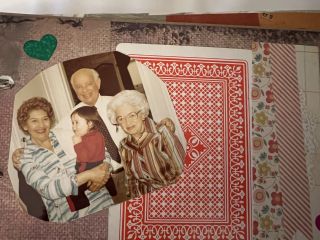Empathy
Conversations With My Younger Self
Personal Perspective: I now understand what I couldn't grasp in my youth.
Posted March 3, 2024 Reviewed by Jessica Schrader
Key points
- Perspectives change in our lives through introspection and time.
- We can have compassion for those whose own lives have been difficult.
- There are many people who can share their love with us.

If I could have a conversation with my younger self, I would tell her that through the gift of years, she will eventually understand what she couldn’t grasp in youth.
My mother’s volatile moods were often dictated by the darkness of San Francisco days, layered with fog that infiltrated both the city and our home with its own opaque darkness. Why was she so cranky? Why didn’t she smile at me? Why couldn’t she be fun and light-hearted like my friends’ mothers?
Today, as a mother myself, my own heart aches knowing my mother’s frequent, joyless moods were intensified and perhaps created by her inability to accept her toddler’s illness and death and her incapacity to freely welcome me, a replacement baby, so soon after his passing.
“Do you want to play a game with me, mommy?”
“No, Barbara. I am tired. Let me rest.”
So many days carried versions of this conversation. She must have felt as if she were drowning, submerged without the ability to breathe. Today, I desperately want to lovingly embrace her and tell her how sorry I am for what she endured, what no parent should experience. I want to tell her I understand now when my 10-year-old self could not. And, even more, today, I cherish the memories of the many mundane days when she was emotionally present; when we played Monopoly on her bed; when she tested me on my spelling.
I wanted my father to save me from my mother’s uneven moods and darkness. I saw him as my cheerleader and empathic soulmate, the parent who understood me and accepted me for myself. Yet, he was unable to pull me from the quicksand of my mother’s grasp, for his 11-hour workdays forced him to return home for dinner and television with little time to play and share my young world. Years have provided the clarity that youth could not uncover, so I say today: “It’s OK, Daddy. I know your work was your escape from your own loss and a despondent wife.”
My Nana Bea, my mother’s mother, was the female I connected with the most. She was the one constant in my life, often welcoming me home from school as she opened the front door of my childhood home while my mother’s bedroom door was frequently closed.
“Your mother is resting, but I’ll get you a snack.” She nourished my body and my soul. I adored her as much as my mother and in some ways even more, for she was lovingly consistent and tolerant and even accepting of my teenage moods.
“I want you to leave,” I said once in anger.
She tenderly responded, “You don’t mean that, Barbara.”
And, of course, I didn’t. My misplaced frustration was just that and she understood me. She never held grudges like her daughter.
While Mother lay in bed, Nana easily lifted my spirits with our daily Gin Rummy games, played on our white, Formica kitchen table. Many nights, Nana helped to get dinner ready, and stayed until my father drove her home. “I’ll see you tomorrow after school, my Barbara,” as she tenderly embraced me.
Nana nurtured both her daughter and granddaughter, as she often served as the buffer between my mother and me. Of course, as a young girl, I did not understand these dynamics, only that my mother wasn’t always emotionally there despite her physical presence.
Today, I am the same age as Nana Bea was when she prepared my after-school snack of oatmeal, sweetened by brown sugar and her love. I play cards with my own grandchildren and silently thank Nana for all she unselfishly gave me that I wasn’t quite aware of then.
Today, my mind utters, “Thank you, Nana, for your tenderness; for accepting me; and for your generous maternal love that I craved.”
The gift of years enables me to look at the past with understanding, acceptance, and ultimately joy. I have compassion for my younger self and the strong, independent, and caring woman she has become.


